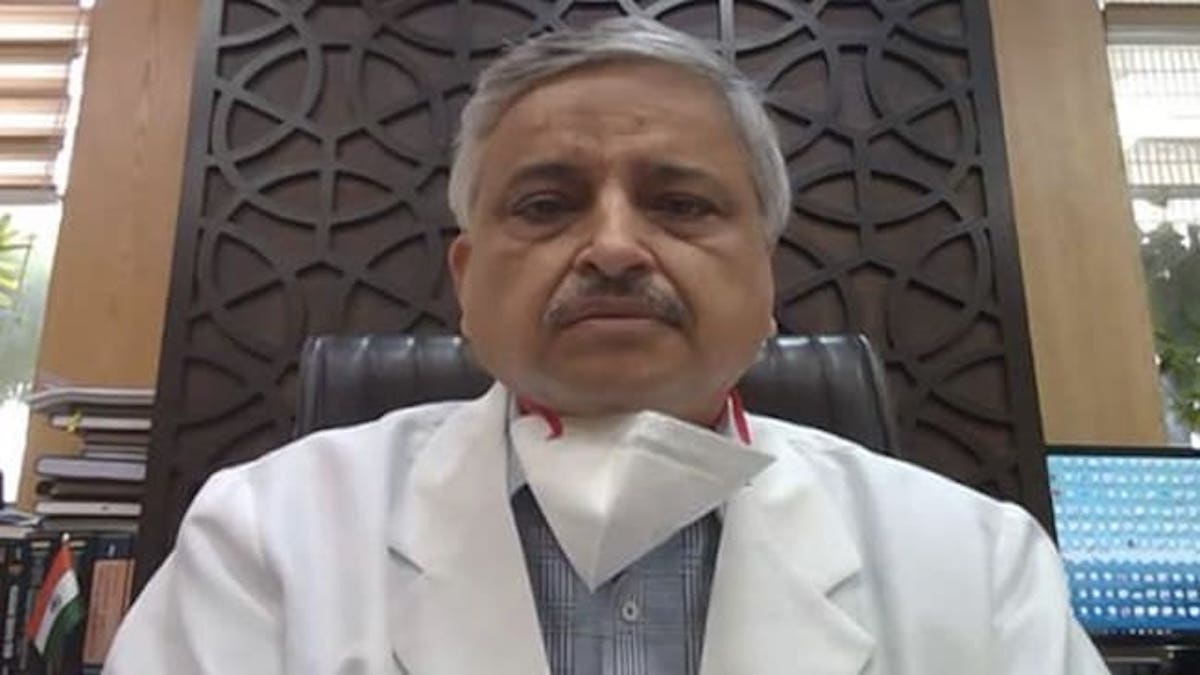Mixing COVID-19 vaccines is a “clear possibility,” according to AIIMS chief Dr. Randeep Guleria, who told NDTV on Saturday morning that additional information is needed before a decision can be made.
Giving one vaccination as a priming shot and another as a booster shot is something that has been considered in the past. Some evidence suggests that mixing vaccines causes somewhat more negative effects, while other evidence suggests that it may improve immunity and antibody protection, Dr. Guleria explained.
More data is required… a significant number of vaccines will be available in the future… Pfizer, Moderna, Sputnik V, and Zydus Cadila will all be available. As a result, we don’t know which combination is superior at this moment… but preliminary research suggests it could be an alternative, he went on to clarify.
The government is working on it, and it has stated that the findings of studies will be available in a few months.
The early findings of a British study were published in The Lancet last month.
Participants were administered an AstraZeneca shot (Covishield) and a Pfizer shot (not yet available in India), and they reported higher short-term (but minor) side effects. Efficacy data is still forthcoming.
According to Reuters, a Spanish study showed the combo to be both safe and beneficial.
Dr. Guleria also dismissed concerns that existing vaccines would be ineffective against the ‘Delta Plus’ variation, noting that further research is needed to determine the mutant strain’s possible immune evasion skills. Despite these misgivings, he emphasised the significance of vaccination and said….even if you are fully vaccinated and come into contact with the virus, you may still become infected, but the severity of the infection may be significantly reduced.
He also raised concern that a single dose might not be enough to combat ‘delta’ variations. According to published medical research, one dose provides 33% protection, whereas two doses provide approximately 90% protection.
“The fact that the first dose of the vaccination may not be enough to combat the ‘delta’ form is cause for concern. To ensure improved safety, we may need to deliver the booster dose much earlier “As scientists debate the government’s choice to extend the time between two doses, he said.
The government is “closely watching” the ‘Delta Plus’ variety of COVID-19, according to Dr. Guleria, but the ‘delta’ strain is of more immediate concern.
“We’re keeping a close eye on it (the ‘Delta Plus’ variety), but ‘Delta Plus’ isn’t the popular form in India right now… the ‘Delta’ variant is.”
The third wave of illnesses in India, according to Dr. Guleria, is unlikely to be as devastating as the second.
There are a lot of disputes about whether the third wave will be more severe than the second… my view is the succeeding wave will not be as catastrophic,” he said, adding that “we need to learn from the second… to deal with the third.
India was hit badly by the second COVID outbreak, with lakhs infected and thousands dying every day. The country was reporting over four lakh cases and 4,000 deaths per day at its peak in early May.
The second wave sparked a severe healthcare crisis, with hospitals struggling to cope with the inflow of patients and key resources such as oxygen, medicines, and ventilators in short supply.
Experts have warned that a more severe third wave of diseases might bring the system to a halt, and have asked the government to enhance health infrastructure.
Dr. Guleria, like other specialists, has cautioned against removing COVID limits too quickly, especially if there is even a small increase in cases.
It should be a red flag if we observe even a modest increase anywhere in the country. Rather than waiting for it to spread, we need to take early action in those regions, he stated.


